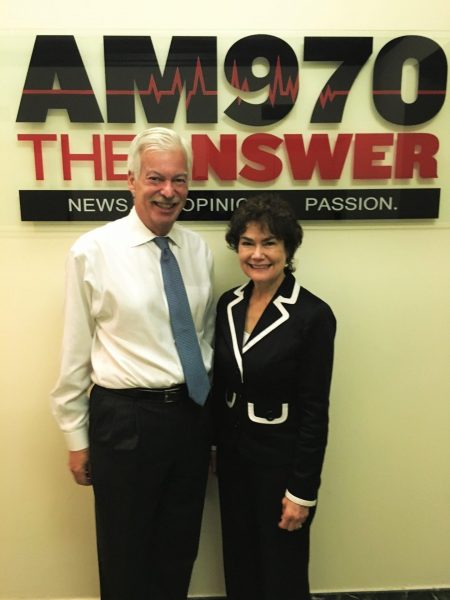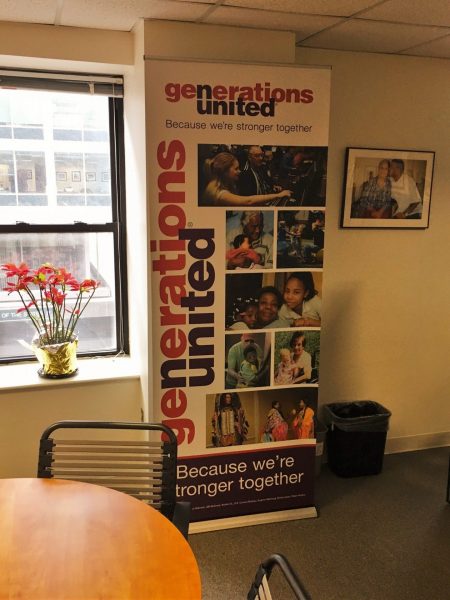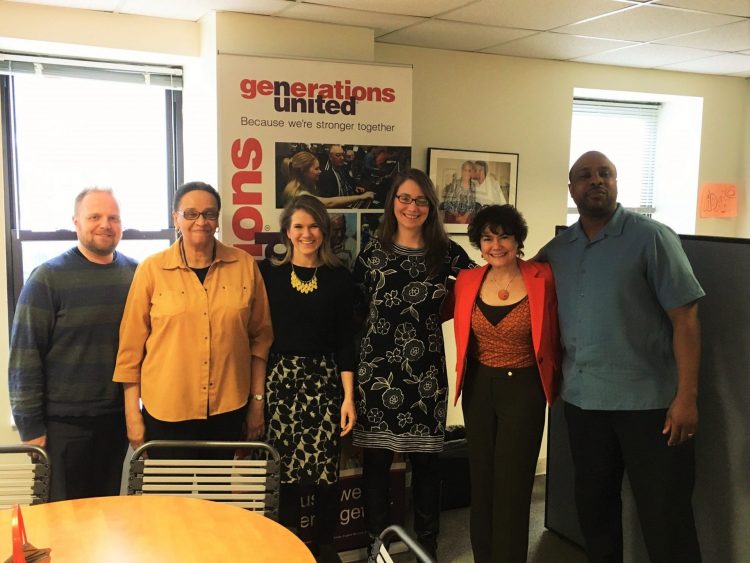Better Than Most is a regular feature of The Business of Giving examining the best places to work among social businesses and nonprofit organizations.
Transcript
Denver: This week, I traveled to our nation’s capital to visit the offices of Generations United and to see how a smaller nonprofit organization went about creating a healthy work culture.
We’ll start with their Executive Director, Donna Butts, who will tell you about the goals of the organization, and then hear from some of the people who work there.
Donna: Well, Generations United has been around for 30 years now. We were founded by the leading children, youth and aging organizations at a time when people were really trying to pit the generations against each other. Our mission is really to develop solutions that involve the strengths of each generation and connect the generations, so we promote intergenerational practices, programs, and public policies.
 Adam: One thing that I really like about working for a smaller organization is that it gives the staff here an opportunity to kind of be a jack of all trades. I think everybody here feels empowered to say that, “Oh, I’m really interested in doing this” or “this thing interests me,” whether it’s web design for social media or just things that maybe wouldn’t traditionally fall under their job titles. Everybody here, I think, feels empowered to step up and say that, and to kind of pursue maybe other avenues outside of just what their normal job title wouldn’t tell.
Adam: One thing that I really like about working for a smaller organization is that it gives the staff here an opportunity to kind of be a jack of all trades. I think everybody here feels empowered to say that, “Oh, I’m really interested in doing this” or “this thing interests me,” whether it’s web design for social media or just things that maybe wouldn’t traditionally fall under their job titles. Everybody here, I think, feels empowered to step up and say that, and to kind of pursue maybe other avenues outside of just what their normal job title wouldn’t tell.
Alan: And it’s pretty much like wherever your interests are and if the interest align with GU’s mission, stuff like that, there’s really no problem in pursuing that. Generations United has made it easy to do that. You just have to speak what you’re interested in and the folks who are here who are either connected in some way or another with the opportunities that you want to take advantage of, they’ll help make that possible for you.
Jaia: I think we like to think of ourselves as fast, friendly, flexible, and fun. And I think a lot of that has to do with our size, but when we have an idea or we want to take action on something, there’s not a large bureaucratic process that you need to go through.
Emily: I also want to speak to how much I appreciate the balance between being in a really hardworking office. I think here, being on a small team, there’s this expectation that you are pulling your weight. And there’s not really room to not hold yourself accountable let alone one another accountable for doing your part to contribute to all the things that need to get done, but on top of that or I guess on the reverse of that, we’re a fun office, too. So we’re a hardworking office that also has just a general sense of humor and lightheartedness.

Jaia: So if we have a young worker that we think is doing too much multi-tasking and on their phone while they’re doing this other thing, but what about that is a strength and how can we tap into that strength? Or we have this older worker—I’m totally playing into the stereotype here—who is struggling to pick up on the technology but is so skilled at telling a story, how do we tap into that strength and help connect the younger and old to maybe be mentoring each other in some way? But not focusing on how we have to change this young worker, change this older worker to fit a particular mold, so really focusing in on the strength. But we have to keep ourselves in check. I’ve found myself and other staff playing into this young worker-old worker kind of conversations, so you have to be real about it, I think, and be honest.
Alan: So we were doing our strategic meeting and the whole time the staff was doing this, they were planning a baby shower for my wife and I in the backroom. And to this day—my wife, I’m surprised she doesn’t get tired of me talking about it—but that was like “wow.” They went all out, like they have all these signs and stuff up.
Emily: I just want to give Donna credit as a leader. She really models the way and I think she sets the tone for the office. She models that balance of hard work and commitment to also being a fun workplace. She goes out of her way to get to know each of us individually and makes sure that in our own roles, that we’re fulfilled and know that we’re a valuable part of the organization and play to our strengths. So I just want to give her credit because I think she’s a huge part about the strength of our organization and how much we’re able to do.

Denver: I want to thank Alan King who organized my visit and the others who participated as well: Adam Hlava, Jaia Lent, and Emily Patrick. Come to denverfrederick.wordpress.com for a transcript of this podcast, pictures of the staff, and the offices of Generations United.
*The Business of Giving can be heard every Sunday evening between 6:00 PM and 7:00 PM Eastern on AM 970 The Answer in New York and on iHeartRadio. You can follow us @BizofGive on Twitter and at Facebook.com/BusinessOfGiving.

